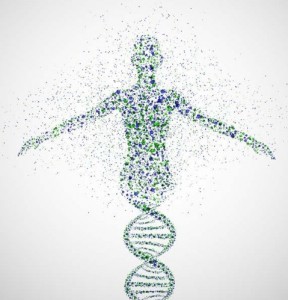
 Let’s talk about what I believe is the future of medicine. The field of genetics and epigenetics is the fastest growing science of medicine today. Everyday, new findings relevant to our health are showing up in research studies. If individuals are focused on disease prevention and longevity, understanding how to deal with your genetic mutations is on the cutting edge of medicine and understanding methylation—an aspect of genetics explained below— is perhaps the biggest piece of the puzzle.
Let’s talk about what I believe is the future of medicine. The field of genetics and epigenetics is the fastest growing science of medicine today. Everyday, new findings relevant to our health are showing up in research studies. If individuals are focused on disease prevention and longevity, understanding how to deal with your genetic mutations is on the cutting edge of medicine and understanding methylation—an aspect of genetics explained below— is perhaps the biggest piece of the puzzle.
Our current medical model is a reactive model that handles one condition at a time. The vast majority of people have several conditions or imbalances at the same time, and unless you treat the body as a whole, your treatment will likely not be ideal. Sometimes we have to step away from the tree to see what is happening in the entire forest in order to treat the trees. Think about it. We must also treat the eco-system. The trees represent different parts of our body (organs, glands, etc.), the forest is our entire body and the eco-system represents the environment and lifestyle.
 When you have a genetic mutation, called, SNP (pronounced “snip”) (SNP = single nucleotide polymorphism), it may lead to certain diseases.
When you have a genetic mutation, called, SNP (pronounced “snip”) (SNP = single nucleotide polymorphism), it may lead to certain diseases.
The old belief that if you have certain genes for certain conditions you will inevitably develop those conditions, is outdated. Today, science has proven that our body has a mechanism capable of silencing “bad genes” or regulating gene expression. This process is called “methylation”.
With the exception of a few diseases like sickle-cell anemia, cystic fibrosis etc., most diseases are controlled by a set of genes. In fact, multiple genes affect most chronic diseases, like most cancers, cardiovascular disease, mental illness, diabetes etc. The more mutations you have pertaining to a particular disease, the greater the chances of you developing that particular disease.
The beauty of understanding this complex biochemical process called methylation is that we can support and enhance its function to regulate these genes.*
 Most of our genes are actually turned off, that’s why you don’t have an eyeball in your arm. We have billions of cells each containing our entire DNA. As our body makes new cells it also makes new DNA every day. Skin cells are made every day and our entire skin is completely regenerated every seven days. The body makes two million red blood cells every second. In a way, in about six months we have a brand new body.
Most of our genes are actually turned off, that’s why you don’t have an eyeball in your arm. We have billions of cells each containing our entire DNA. As our body makes new cells it also makes new DNA every day. Skin cells are made every day and our entire skin is completely regenerated every seven days. The body makes two million red blood cells every second. In a way, in about six months we have a brand new body.
In my practice, when it comes to genetics, I separate our genes into two categories: The genes that affect diseases and the genes that affect methylation. In my opinion the methylation genes are the most important ones because they control gene expression.
There are about 20 genes that are most significant in the direct effects on methylation. A comprehensive look must take place in order to understand what might be the weakness in the individual’s natural ability of methylation. Once you understand that, you must take two steps:
- Support the methylation cycles and
- Boost the methylation function of the particular organ system that are threaten by disease gene mutations.
Out of all the genes that have a direct effect on methylation, the most significant one is MTHFR (methylenetetrahydrofolate reductase). MTHFR is by far the most studied and researched of the genes.
Some of the conditions that have been found by research to be associated to the MTHFR mutation are:
- Infertility
- Miscarriages
- Autism
- Down syndrome
- Pre-eclampsia
- Spina Bifida
- Addictions
- Pulmonary Embolisms
- Depression & Anxiety
- Schizophrenia
- Bipolar
- Vascular Dementia
- Alzheimer’s
- Neurologic Diseases
- Fibromyalgia
- Chronic Fatigue
- Irritable Bowel Syndrome
- Parkinson’s
- Heart Disease
- Blood clots
- Atherosclerosis
- Diabetes
- Stroke
- Gastric Cancer
- Rectal Cancer
- Breast Cancer
- Migraines
- Multiple Sclerosis
- Asthma
- Essential Hypertension
- Heart Attack
- Prostate Cancer
- Heart Murmurs
- Glaucoma
- Bladder Cancer
- Stroke in Children
- Deficits in childhood cognitive development
- Chemical Sensitivity and more…
Many factors can disrupt methylation:
- Genetic Mutations
- Drugs/Medications
- Stress
- Improper Diet
- Toxic Environment
- Wrong Supplements
- Inflammation
- Radiation (cell phones, x-rays, MRI, electrical towers, etc).
The Solution:
Avoid trying to treat yourself, leave it to a health care practitioner trained in methylation dysfunction. Avoid any high dosages of supplements based on genetics alone. If a high dosage is needed it needs to be to address a very low biochemical marker on your blood test and it should not be taken for longer than a week in most cases. As with anything else exceptions do exist. I call a high dose supplement a “prescription dose”. It will disrupt the biochemical cycles if taken for long periods of time like medications do.
An individualized assessment is necessary as everyone has unique mutations at different genes and alleles. A non-individualized approach is a major biological stressor!
Correct internal organs malfunction to enable methylation and gene regulation activities, support the methylation cycle to correct gene mutations, optimize digestion to make sure your body will actually absorb any nutrients needed through diet or supplements.
The Analogy:
You may fuel your car with a high-octane gasoline (the nutrients), but if different parts of the engine (the organs) are breaking down your car will not run well. Think about this when you consider your body engine.
For any questions you may call us at 310 914-1624 or email us at wellness@acupuncture.cc
